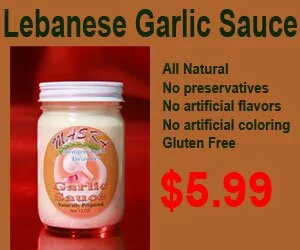Image vs. talent: wine writing’s tipping point
After my post yesterday on the Anthony Bourdain-Paula Deen smackdown I decided to watch the Food Network’s reality TV show, Food Star. Starring such on-air chef personalities as Bobby Flay, Alton Brown and Giada De Laurentiis, it’s the center of the celebrity chef universe these days.
Modeled after Project Runway, Food Star pits wanna chefs against each other: the prize is their own program on the Food Network. Heady stuff. On the episode I watched, they were down to the final three contestants. Each of them made some food and then the judges had “a l’il talk” (as Heidi Klum might put it). What they said kind of shocked me. It was, basically, “Everybody’s food is really good, so our selection isn’t going to be based on culinary talent. Instead, it’s on personality–on air appeal–likeability–shtick–star power.”
I say it shocked me, because I would have thought that such a decision would be based on talent alone. Granted that all three of the final contestants produced good food: surely, somebody’s had to be better than the others’. And they all had a corpus of work the judges were aware of and could base a decision on. But instead of really analyzing the chefs’ cooking talent, the judges based their decision on whom they presumed Food Network’s viewers would want to watch on TV.
Isn’t that bizarre? But it gets to something I’ve touched on in this blog on various occasions. For example, I wrote about waitstaff in restaurants, who seem to be hired mostly for their looks and sex appeal than for their serving talent, especially in San Francisco, where looks count for so much. Ditto for bartenders, or mixologists (is there a difference?). They all look like Johnny Depp in Pirates of the Caribbean. Maybe they’re talented, but can’t ordinary looking people be talented?
Don’t get me wrong, I appreciate a pretty face as much as the next guy or gal. But here’s my question, and it relates to what Anthony Bourdain was criticizing the Food Network for. Why are these people hired in the first place? It’s not because they’re great cooks. It’s because they’re entertainers. “Star power” is exactly what they have, even if their food isn’t any better than, well, yours or mine.
There’s an analogy to be made here with news reporting. It used to be that TV news anchors were hired for their intelligence and ability to deliver the news clearly and authoritatively. Think of Walter Cronkite or Jim Lehrer. Now, we have news deliverers hired solely on the basis of their ability to rile viewers up: Sean Hannity, Bill O’Reilly, Keith Olbermann (see, I’m trying to be nonpartisan). On local television, it seems like news people are hired for their looks. The blow dried, square jawed male anchor, with his Barbie Doll long blond-haired sidechick, are clichés we all rightfully make fun of. But what’s the difference between that, and the Food Network looking for sex appeal in their stars? (Yes, I’m talking to you, Ms. De Laurentiis, and you, Mr. Flay, and you, Mr. Tyler “Diesel Jeans” Florence, and even you, dear Paula Deen. You’re no longer young, but you’re still hot!).
Thank goodness the wine media has largely avoided resorting to using people based on their looks instead of talent. To tell you the truth, most wine writers are pretty ordinary looking. If it were a matter of good looks, we’d be out of jobs. (I exempt, of course, 1WineDude). But seriously, Hollywoodization is taking everything over. Even presidential candidates have to be hot. (Calling Ms. Bachmann, Ms. Palin and Gov. Perry, and please, Rick, wear your Stetson.) We seem to have such low self-esteem that we need to ogle beautiful people in order to make life bearable. That’s a pretty sad state of affairs.
Does any of this matter for wine writing? Yes, because content is king. If content actually contains content, we’re fine. If content is content-less, delivered by some pretty airhead wannabe cyberface who claims to know everything but is clueless and whose only plus is a groovy personality, we’re in trouble.









